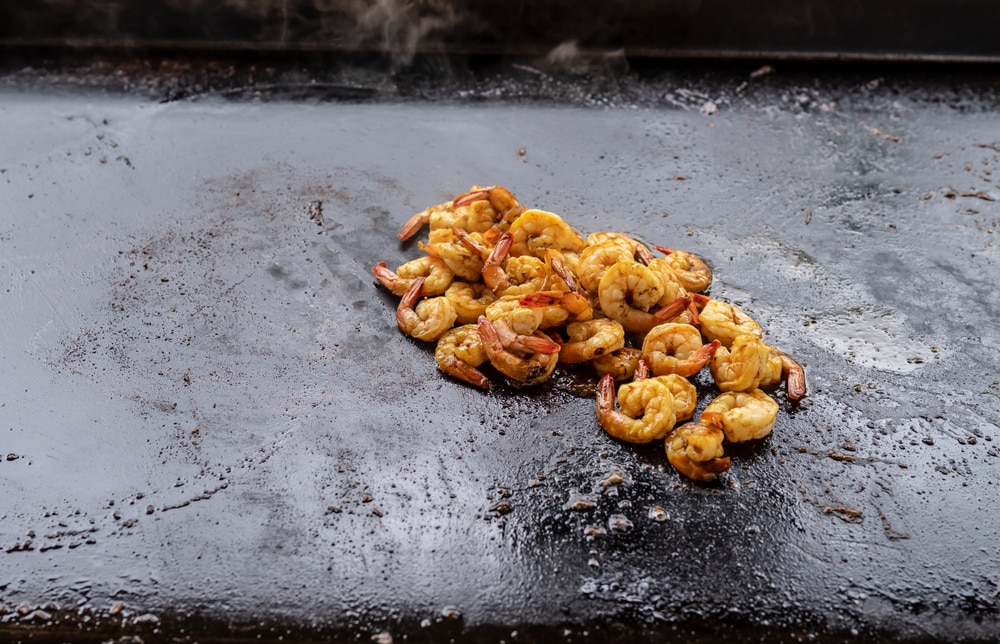
Blackstone griddle is one of the best choices for people who want outdoor cooking equipment to cook different types of food, ranging from dinner to breakfast and lunch recipes. For instance, it’s a great appliance for cooking poultry, meat, fish, vegetables, rice, eggs, rice, and bacon. These griddles are made from premium material as it has to withstand high temperatures.
However, people don’t always maintain and take care of the griddle, which results in flaking. So, let’s see the reason behind Blackstone griddle flaking and what can be done to prevent it!
Blackstone Griddle Flaking:
Is Flaking Normal?
Blackstone griddles are globally popular for their durable build and premium materials. This is because the manufacturers use high-end materials for the framework and griddle top. In the majority of cases, the griddle has been designed with rolled carbon and a seven-gauge steel surface with stainless steel basting coverage. Having said that, flaking is not normal because the griddle could be flaking because of rust.
Reasons Behind Flaking
In the majority of cases, improper handling and insufficient maintenance can lead to flaking in the Blackstone griddle. In particular, these are the common reasons;
1. Improper Seasoning
Usually, people only consider salt and pepper to be the seasoning because it’s used in food and isn’t connected to the griddle’s functionality. When it comes down to the Blackstone griddle, seasoning is all about basting the cooking surface of the griddle – it is done with the help of lubricants and oils to create a protective layer. The seasoning helps create a nonstick surface for the griddle, which prevents the chances of burnt food particles sticking to the surface.
It’s common for people to forget about seasoning the griddle before they use it, or they simply don’t understand the importance of seasoning. Without proper seasoning, food particles will burn quicker and will be difficult to peel off. In addition to this, seasoning should be done regularly because it’s essential to retain the surface.
2. The Grease Build-Up
During cooking, it is essential that you remove the residues left behind by the grease before you add a new batch of food to be cooked. When it comes down to the griddle top, it is exposed to high heat during the cooking process, which leads to the hardening of the grease residues. In addition, it leads to the charring of grease, which sticks to the cooking surface. Keep in mind that the charred particles will keep buildup up and damage the surface, which eventually results in flaking.
Secondly, bacon fat tends to have salt additives and phosphates that can damage the seasoning layer. You must not wash this grease layer because soap tends to break down the griddle’s seasoning layer. So, it’s important that you clean the grease buildup as soon as possible (preferably before you cook the second batch of food).
3. Improper Maintenance & Care
Many people think that it’s enough to season the griddle and remove the layer of grease after the cooking process. However, if you aren’t following the right process, it will actually do more harm than good. For instance, you cannot use the liquid dishwasher to clean the grease and don’t even think about scraping off the food residues with a scraper. This is because if you push the scraper in a diagonal range, its sharp metal will lead to scratching and flaking.
How To Fix Flaking On Blackstone Griddle?
Now that you know the common reasons behind flaking on your Blackstone griddle, there are a few fixes that you can try out, such as;
- You should always oil the griddle surface to make sure the cooking surface remains even and smooth. However, you must clean the griddle before applying the oil and apply multiple layers of oil to ensure the proper seasoning layer
- It is important that you clean the griddle as soon as you are done cooking the food. To clean the griddle, you need to use a wide scraper for scraping off the food particles and clean it up with a soft napkin
- Make sure that you re-season the griddle regularly to make sure the seasoning layer is retained all the time; it is important for keeping the food from sticking and burning the leftover food particles
So, are you ready to fix the flakiness?